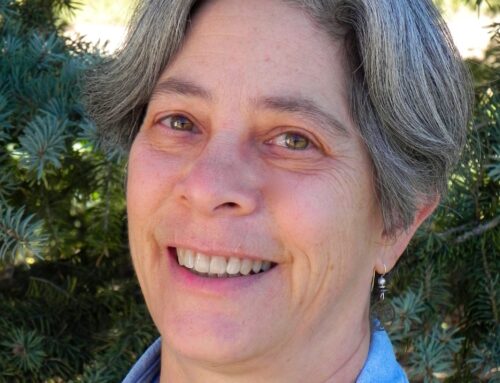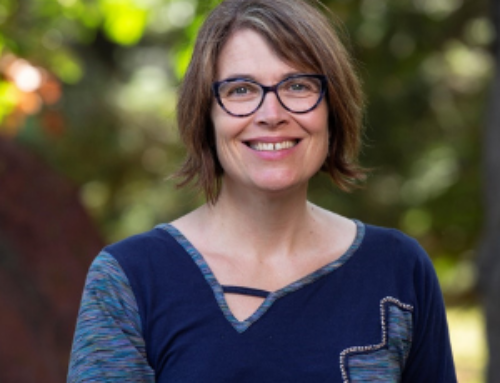Postdoctoral Research Fellow
Institute of Natural & Mathematical Sciences, College of Sciences, Massey University, Auckland, New Zealand
We are seeking a Postdoctoral Research Fellow to contribute to the project ‘Synergising ecology and evolution: discovering patterns of functional and phylogenetic diversity of New Zealand's marine fishes versus depth’. Applications close: 19 January (11:45pm, New Zealand Standard time).
Project Overview
Biologists know least about the largest habitat on earth – the deep sea. Fundamental patterns of functional and phylogenetic biodiversity, from coastal waters to the abyss, have never been quantified. Do biodiversity trends in the ocean follow the patterns in alpha and beta diversity seen in the terrestrial environment? New Zealand’s latitudinal range and nearshore continental shelf offers a unique opportunity to address trends in biodiversity and community structure and to disentangle the evolutionary and ecological drivers of these patterns. This project will complement an existing stratified and replicated depth by latitude dataset describing fish community composition. Specifically, this project aims to combine phylogenetic and functional information with knowledge of community composition for the fishes of New Zealand and to understand the ecological and evolutionary drivers of community composition from the sub-tropics to the sub-antarctic, and from the shallows to the abyss. The results of these analyses will have a major impact on the interpretation of the ecology and evolutionary history of New Zealand’s fish communities and biodiversity patterns in the ocean, and will contribute novel methods of analyses for biodiversity research.
Position Overview
We are seeking a motivated and innovative researcher, keen to make their mark in the field of quantitative biodiversity research. The ideal candidate will have a PhD in biology and will have experience in phylogenetics, diversification analyses, biogeographic analysis, comparative methods, trait-based analyses, ecological modeling, multivariate statistics, macroecology, and community ecology. Applicants with only a subset of these skills are encouraged to apply. A track record of publication in international journals and relevant statistical, computational and programming skills are expected. The appointed Fellow will conduct phylogenetic analyses of new and data-mined sequence data, and will combine these data with existing community data, and functional trait data to describe biodiversity patterns. The Fellow will contribute to the development of statistical methods to help test explicit hypotheses that will disentangle evolutionary and ecological drivers of diversity and turnover. The Fellow is not expected to have any prior experience in marine fieldwork, molecular genetic benchwork, or ichthyology. The appointee will be encouraged to supplement the primary research goals of the project with their own research objectives, in consultation with the wider research team that includes Prof. Marti J. Anderson (co-Primary Investigator, Chair in Statistics, Massey University), Dr. Clive Roberts (co-Primary Investigator, Head Curator of Fishes, Museum of New Zealand Te Papa Tongarewa), Dr. Libby Liggins (mentor/supervisory role, Lecturer in Marine Ecology, Massey University) and a recruited PhD candidate (responsible for functional trait analysis, Massey University). The Fellow will be expected and supported to publish and present their findings to international peers. Proficiency in written and spoken English is required.
Position specifics
The position is three years, starting March 2016 (a later start date may be negotiated for an exceptional candidate). The Fellow will be based in the Institute of Natural and Mathematical Sciences (INMS) at Massey University’s campus in Auckland, New Zealand. INMS is a recently formed multi-disciplinary research and teaching Institute incorporating Biology, Chemistry, Computer Science, Mathematics, Physics and Statistics. In conjunction with world-class researchers in the closely-linked Institute for Advanced Study (IAS), INMS has special strengths in quantitative biology and ecology, evolution, genetics, mathematical biology, computational science and modelling of complex systems. Massey University is in the north of Auckland, with easy access to the city of Auckland (New Zealand’s largest and most culturally diverse city) and recreational areas such as the harbour, islands, beaches, and forest parks. The Fellow will be joining a dynamic team of researchers working on the frontier of statistics, ecology, and evolution. The Fellow will also work closely with scientists of Te Papa Tongarewa, Museum of New Zealand, in Wellington, New Zealand’s capital city. Te Papa holds New Zealand’s National Fish Collection and supports an active ichthyology research team.
Enquiries regarding the funded project and specific role of the Fellow should be directed to Dr. Libby Liggins (Email: l.liggins@nullmassey.ac.nz) or Prof. Marti J. Anderson (Email: m.j.anderson@nullmassey.ac.nz).
Information about the Institute of Natural and Mathematical Sciences can be found at http://inms.massey.ac.nz; information about Te Papa Tongarewa can be found at http://www.tepapa.govt.nz/




